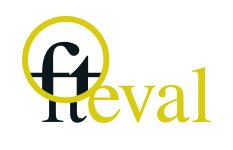Peer Review Policy
The Journal adheres to a double-anonymous/blind peer review process. After the submission of an article, the Chief Editors select two peer reviewers from the Editorial Board depending on their technical expertise and subject areas. For special issues or specific topics, an article may be assigned to an additional reviewer beyond the members of the Editorial Board. To ensure integrity, the Chief Editors will not accept recommendations for the reviewers from the authors.
The reviewers’ tasks are:
- To read the full article and view all associated graphs, figures, tables and data.
- To demonstrate the understanding of the article. The peer review should discuss the entire article as well as individual points.
- To include specific comments and as many details as possible so that the authors can fully address the issues. If necessary, also provide additional references.
- To be constructive and polite in their criticism. If required, include any concerns and criticism but only in a respectable manner.
- To avoid insulting comments. The review should be written in a way as the reviewers wish to be reviewed themselves, and ensure their comments focus on the content.
Based on the feedback of the two reviewers and the final judgement of the Chief Editors, the author will receive feedback in the format provided by the reviewers (either direct comments or review statements).
The peer review process shall not take longer than six weeks. The peer review results in a recommendation for publication or modifications or refusal.
A final publication decision is taken by the Chief Editors of the fteval Journal. If required, the Chief Editors may request additional feedback from the Editorial Board members.
In case the Chief Editors or members of the Editorial Board want to submit an article for the Journal, the peer review process will be managed by alternative members of the Board and the submitting colleague will not be involved in the decision-making process.
If reviewers realise a conflict of interest which could potentially influence their review report, they need to immediately inform the Chief Editors, who may reassign the review.
Submissions to the Journal should be treated as “privileged information” and should not be shared with any third parties or personally used.
Assuring the quality of each submission, it is important that:
- The paper is interesting and relates to the current scientific discourse or practical policy application, and is of general interest to the evaluation community.
- The paper is put in context and includes a reflection of the pertinent literature/scientific articles and a comprehensible description of the specific interventions OR describes the current state of the art of policymaking in science, research, technology and innovation realm.
- The methodology is described, appropriate and reflected reference is made to scientific articles. Any methodological shortcomings are made transparent.
- The text is written in good English or German, in logical sequence and understandable. Tables and graphs used are comprehensible and meaningful.
- Statements, conclusions, and recommendations are based on a sound understanding of the situation (in case of practice-oriented articles) and supported by results, evidence and/or theory. Opinion papers may be of a bit more speculative nature, but still must be well argued.
- The paper is original and not a substantial copy of another work (plagiarism).
- The references are accurate and a reference-style is consistently applied.
If a submission is found to be unsuitable, it will not be accepted for publishing. Content considered as fake, non-scientific or pseudoscientific will not pass the peer review.

